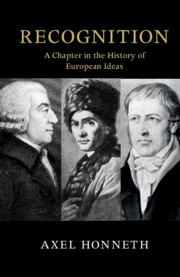Recognition
The idea that we are mutually dependent on the recognition of our peers is at least as old as modernity. Across Europe, this idea has been understood in different ways from the very beginning, according to each country's different cultural and political conditions. This stimulating study explores the complex history and multiple associations of the idea of 'Recognition' in Britain, France and Germany. Demonstrating the role of 'recognition' in the production of important political ideas, Axel Honneth explores how our dependence on the recognition of others is sometimes viewed as the source of all modern, egalitarian morality, sometimes as a means for fostering socially beneficial behavior, and sometimes as a threat to 'true' individuality. By exploring this fundamental concept in our modern political and social self-understanding, Honneth thus offers an alternative view of the philosophical discourse of modernity.�
- Explains the historical origins of an idea that is central to contemporary understandings of the self
- Traces the exchange and transfer of leading ideas within Western Europe and clarifies the cultural differences between France, Britain and Germany
- Places the key idea of 'recognition' within the context of the development of the fundamental political ideas of a modern democracy
Product details
December 2020Paperback
9781108819305
192 pages
216 × 138 × 11 mm
0.24kg
Temporarily unavailable - available from TBC
Table of Contents
- 1. Methodological Remarks on the History of Ideas vs. The History of Concepts
- 2. From Rousseau to Sartre: Recognition and the Loss of Self
- 3. From Hume to Mill: Recognition and Self-Control
- 4. From Kant to Hegel: Recognition and Self-Determination
- 5. A Historical Comparison of Recognition: An Attempt at a Systematic Summary.



